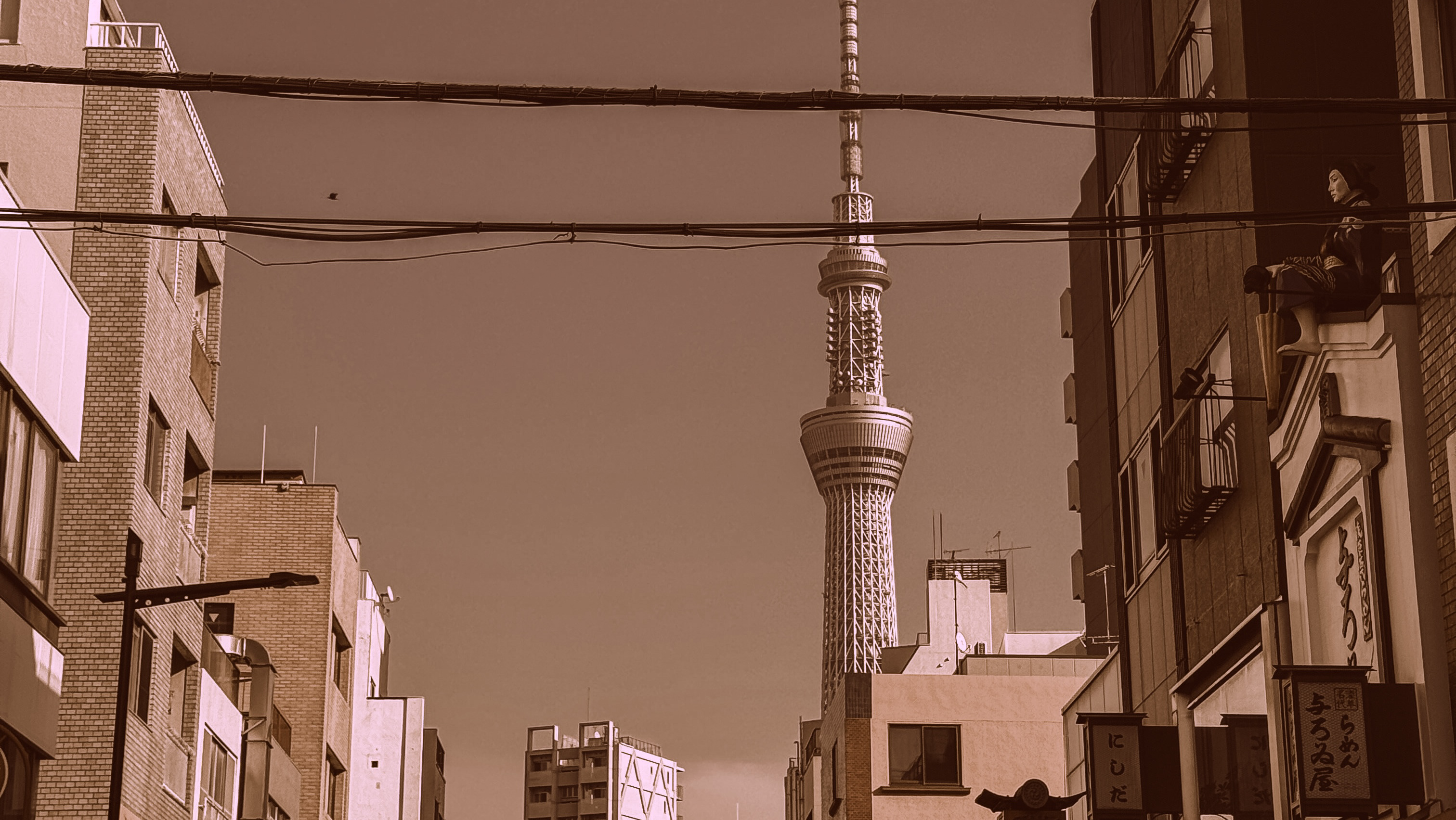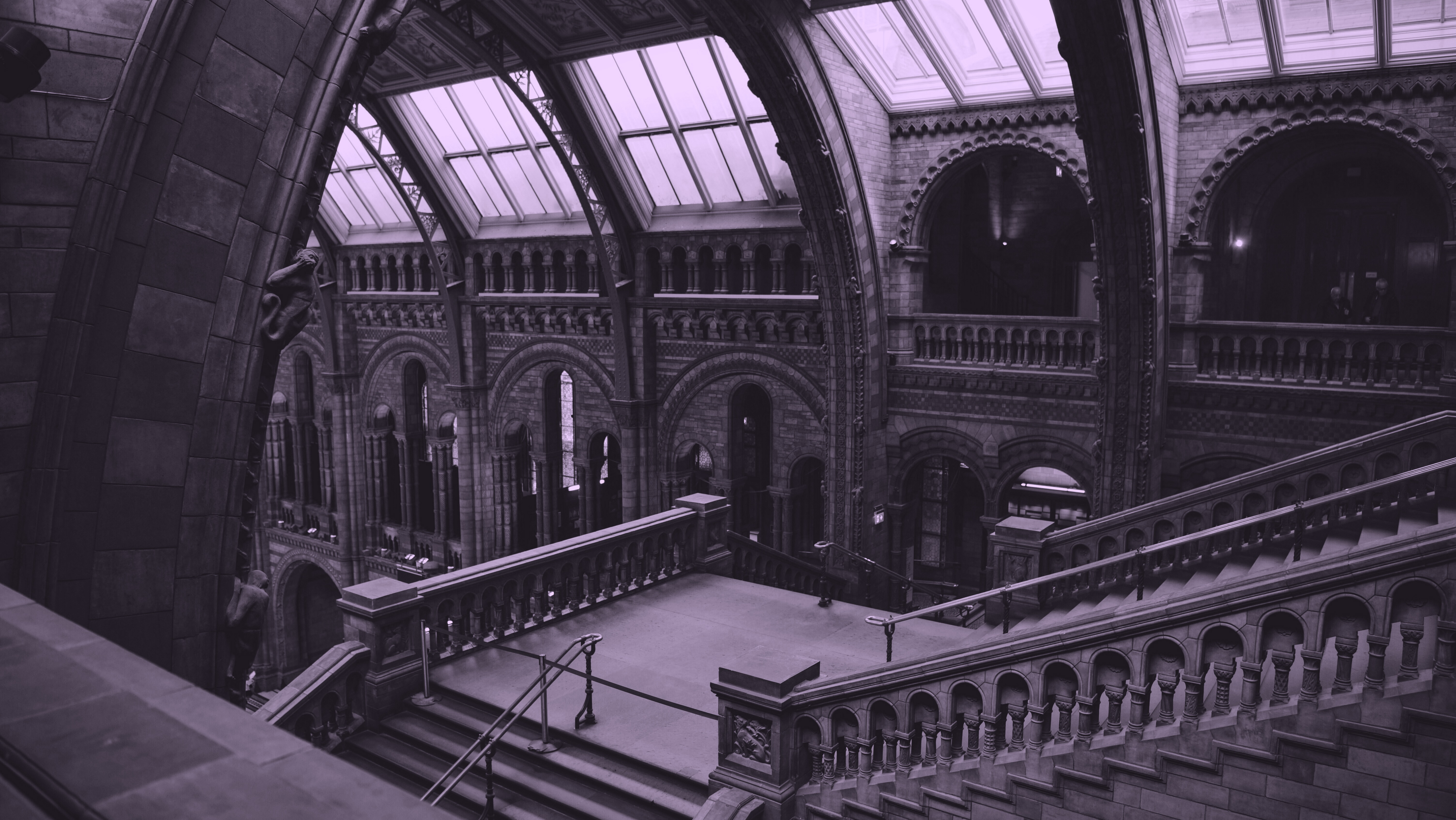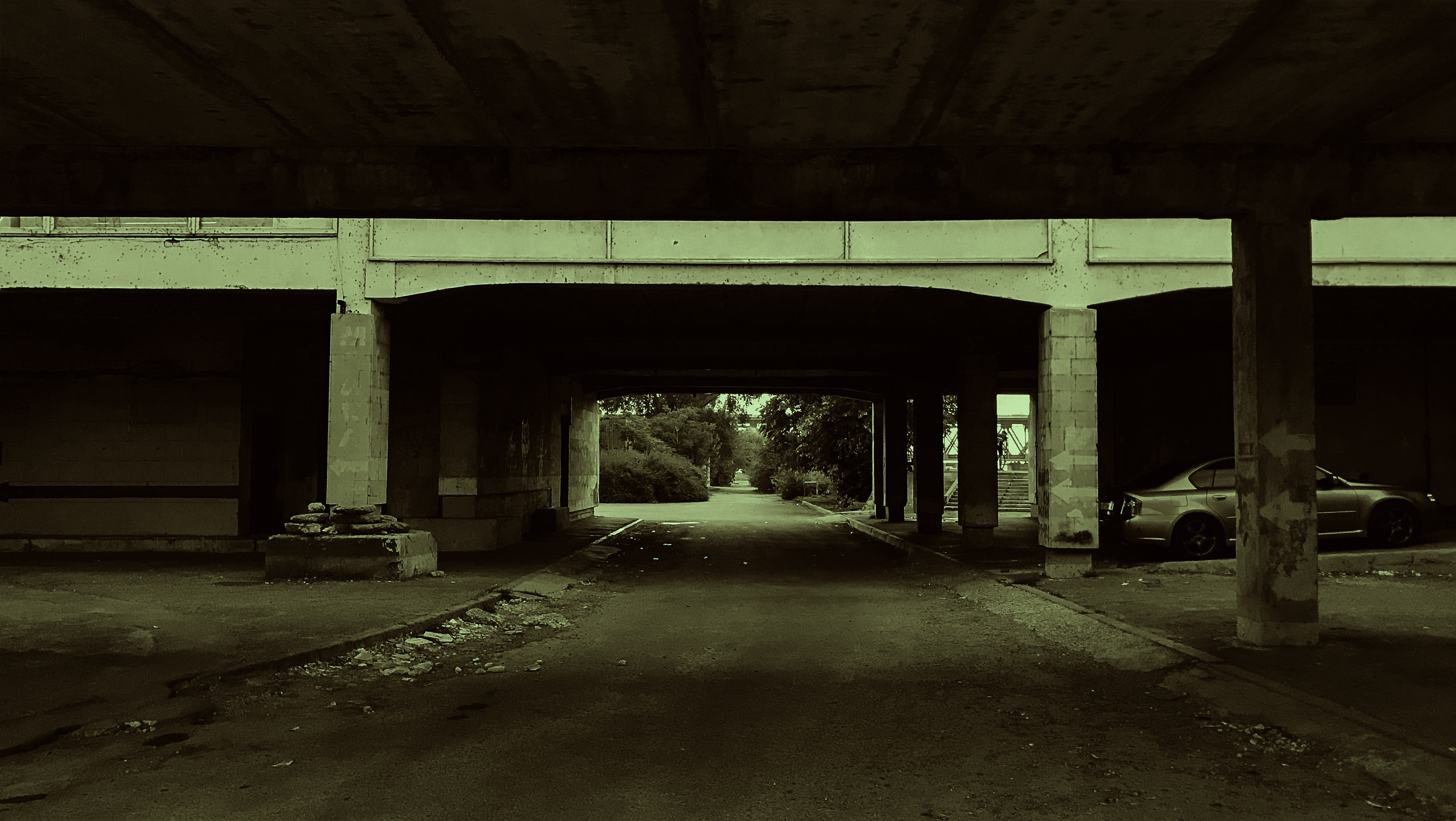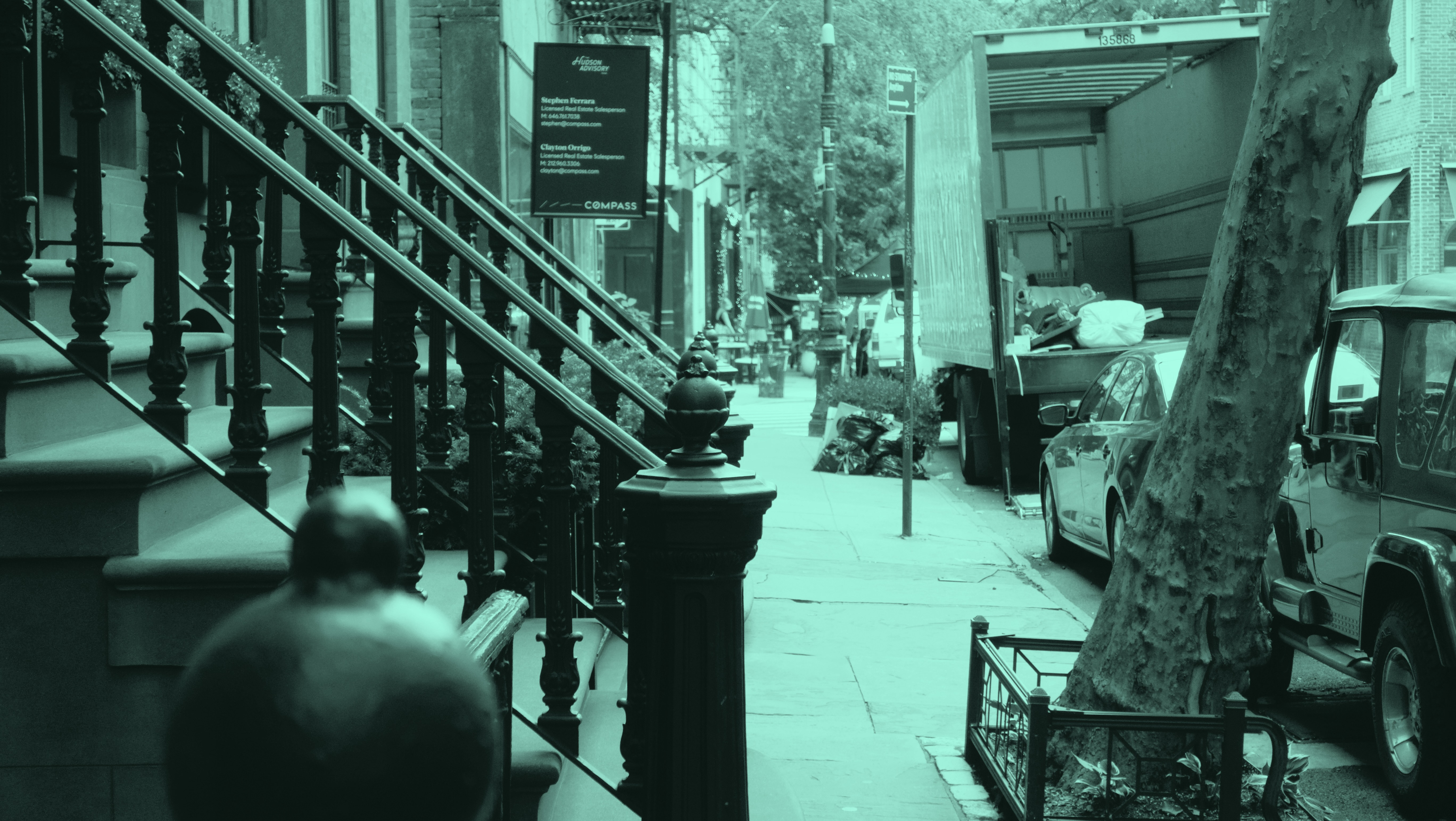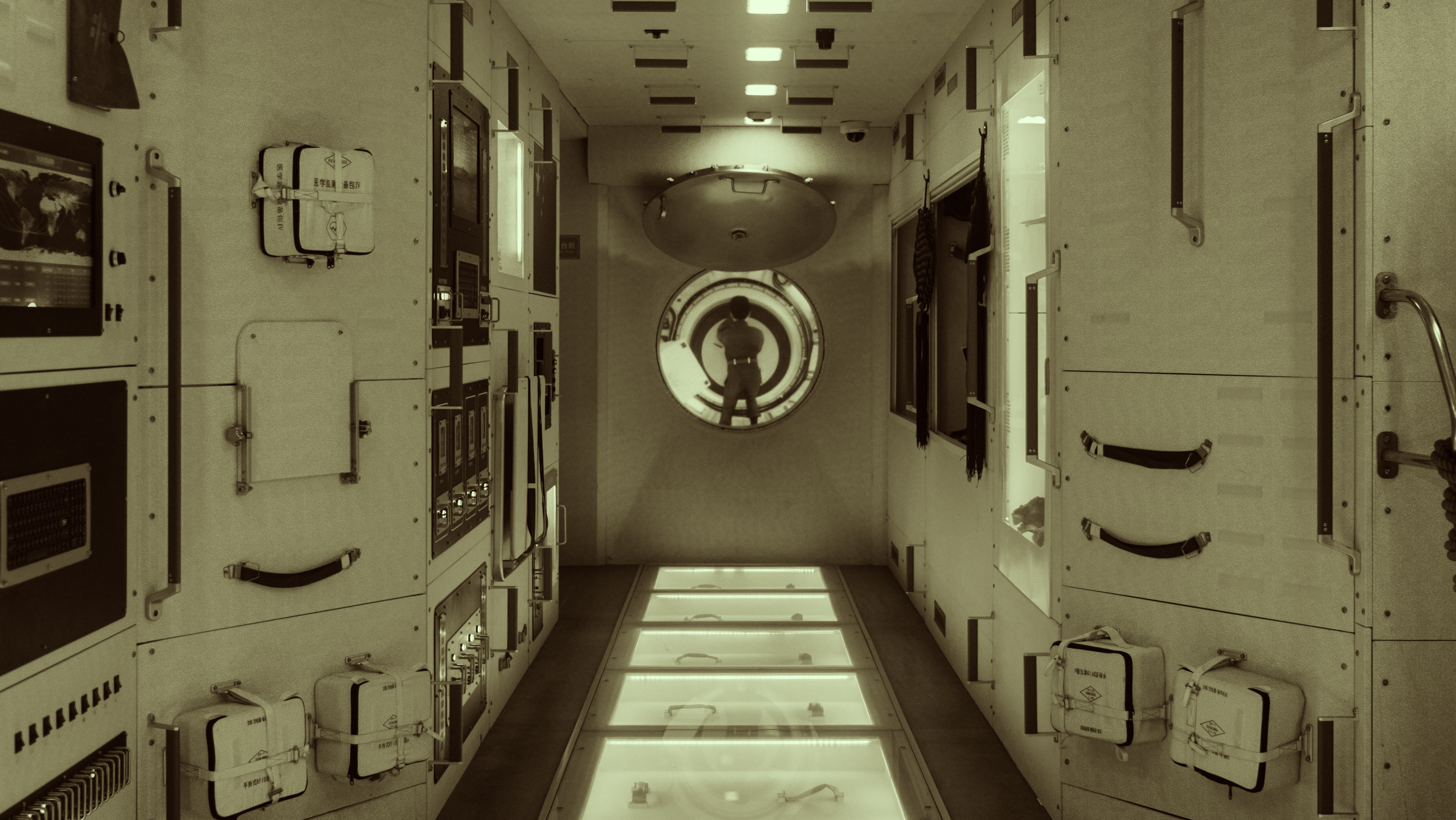An intense weight slumped Peter forward as he walked from the parking lot to the prison entrance, as if imaginary shackles were pulling at his wrists and ankles. It was a hereditary weight, earned from a lifetime of shame and subservience. His father called it obedience training, in that cigarette-strained chuckle he was well known for. But even after Peter severed ties with him, and thought maybe he’d feel some relief, that weight just intensified. Solidified. Forcing him into a hunched posture he was well aware of, but lacked the muscle memory to correct. He felt it most after John Michael Baker’s conviction. How the weight strained against Peter’s shame. How he had failed a man now condemned to die. How he hadn’t defended him well enough against the state of Oklahoma.
Picketers echoed against the bitter wind as he made his way up the cracked concrete walkway. Their sound was a common sound. The wails for justice reform, the rage for it to be done, waves crashing against one another. They stood orderly in the glow of the prison floodlights, on either side of the path, like some late night gauntlet. Some were familiar faces Peter had seen outside the courthouse. He’d recognized them from their homemade signs — eye for an eye is in the Bible, treat them the same as their dead, an eye for an eye makes the whole world blink, stop the cycle of killing — things like that. There were always more people defending the barbaric treatment of prisoners than not, but would they have felt the same way if it was them carrying out the sentence instead of those ridiculous AI executioners Haxon | Lo sent to all the prisons?
From the moment the law passed a year earlier, there was a sea change in public opinion. As long as those horrible monsters were put to death, nobody cared how it was done. Especially since they didn’t need to witness it. The public grew complacent to the punishment and, Peter feared, they would numb to what ties humanity together. That they’d forget compassion for one another, forgiveness for failures, unconditional love.
The murmurs through the prison lobby faded to silence when Peter entered, as if the other witnesses could see the hidden camera in his collar button, and they all knew that he was recording the execution for the world to see. But their stillness was interrupted by the whirring of an AI prison guard standing behind the desk, drawing Peter in with its cold, lifeless face. It was clinical and without expression, like everything else in the prison. Metal gates clanged somewhere in the distance. The strong smell of bleach set Peter’s nose on fire, and the room began to spin as his mind filled with whatever guilt had been lingering in the stale air.
“Are you here for the execution, sir?” the AI asked.
Peter nodded as he wiped the sweat from his forehead.
“Name and relation to the condemned?”
“Peter McCaffrey. I was his lawyer,” he said. And he felt the eyes of the other witnesses hone in on him. He’d seen their faces and ones exactly like them a thousand times since the trial ended. The shock and awe in their eyes when the judge passed down the harshest sentence the country had ever seen, let alone the state of Oklahoma. Baker's punishment was enough to set every person in the prison lobby on edge.
“McCaffrey,” he heard a familiar voice call out from behind him. He could feel her smug expression before he even turned around to lay eyes on her short frame waddling toward him. Lily Alvarez was someone he’d hoped never to see again. Six weeks arguing against her was about all he could handle.
“Heard your dad’s coming,” she said.
“I haven’t spoken to him” he replied with a shrug. He didn’t need to fill in the rest. She already knew they hadn’t spoken in months and that he didn’t really care if they ever spoke again. All of that was public knowledge after Lily leaked it to the press to secure her book deal. Public defender’s own father was key witness for the prosecution was enough of a headline to wedge them into history.
Peter had learned of Baker’s arrest from the evening news. His dinner had just beeped in the microwave when all of the sudden he heard his father’s gruff voice on the television. He wore his big cowboy hat with that Sheriff’s badge pinned right to the front for the whole world to see. Red McCaffrey was the quintessential cowboy Sheriff with rough skin and a thick grey mustache. He stood stoically, expressing his relief that the victims of Baker’s heinous crimes would finally see justice. Peter’s father had been after him for years. It was all he’d talked about most holidays when he was forced to see Red if he wanted to see his mother.
Before that night, he hadn’t heard from his father in six months. Not since Christmas. They’d just sat down at the bar for their holiday dinner, as Red put it, and he didn’t waste a breath digging into Peter about why in the hell he’d ever want to be a public defender. Why he’d want to justify the horrible things other people did and work so hard to get them out of paying for their crimes. Normally, Peter would’ve sat there and taken it, obediently angled over his drink and bar chips, but something urged him to push back. Maybe it was his mother’s death that both refused to talk about, but Peter found him self straightening up. He told his father it was important to defend people against corrupt law enforcement who did whatever they could and said whatever they needed to, just to close a case so they can get reelected. Red didn’t take kindly to that. He was not a man accustomed to back talk, especially not from his only son. And if, God forbid, Peter ever snapped back at him, Red had just calmly asked for his belt and made him wish he’d never opened his mouth. Peter and his mother spent a lifetime taking his shit, her more than him, but he wasn’t about to let Red tag him as his new punching bag. He’d suffered enough of it was he was a child. He owed it to his mother to stand up to Red from then on. He downed his drink, said Merry Christmas, and left his father alone at the bar where he was happiest.
Peter watched the caged clock on the prison wall tick toward 11:30pm, mostly in silence, broken every few minutes by someone whispering innocuous details about nothing important. One of the victims’ brother stood with Lily, shooting Peter dirty looks that he knew all too well from the trial; and Baker’s mother sat by herself staring vacantly at the floor. Peter’s eyes drifted to the door, anticipating his father marching through them like he owned the place. He tried to picture how Red would react to this AI-run facility. If he’d feel threatened that his job was next on the chopping block.
But Red never showed.
The AI prison guard scanned each witness through the metal detectors and walked them down the hallway to a small viewing gallery. They took their seats, spread out between two rows of chairs all angled toward a glass wall blocked by a curtain on the inner side. Peter sat in the back row so his camera could capture the gallery’s reaction as well as the execution itself. But the victim’s brother continued to stare at him, so Peter crossed his legs and turns his body away and worried the whole time that his camera wouldn’t capture what it needed to. A clock above the gallery window ticked down to midnight, and each tick felt louder than the one before it, that melodic tone thundering through Peter’s ears like some broken drum, until the curtain parted in some perverse relief.
There, behind the glass was a plain black room with a door at the rear. Peter felt like he was sitting in some strange black box theatre awaiting a performance. In the center of the room stood an AI robot beside a bale of hay. The robot was different from the sleek black ones throughout the prison. It was fully chrome, so shiny that it mirrored back the anxious horror of the faces from the gallery. Peter had read that the scientists at Haxon | Lo designed these reflective models to give the condemned the feeling that they were enacting their own death. But all Peter could see was himself in its face.
The sound of shuffling feet closed in from some unseen hallway, until without ceremony, the rear door swung open and two AI prison guards dragged the thin-framed Baker into the execution chamber. His clothes were sweaty and soiled, his face unshaven and defiant, but there was a fear in his expression that froze Peter’s entire body in place. Baker had gone on a hunger striker for almost a week in anticipation of his execution. He wanted the world to know what was going to happen to him, stir up whatever outrage he could, but his crimes had been so infamous that he couldn’t get anyone to listen.
When Peter last spoke to him, Baker had described himself as a man waiting at the gates of Hell, heat steaming off the arid landscape already agonizing him, knowing there was worse to come. The demons can see me, he kept saying over and over, until he finally quieted down and caught his breath. Then out of nowhere, in his squeaky voice, he asked if he ever had a chance to begin with.
Baker had grown up in rural Arkansas to a stepfather who touched him and beat him and touched him and beat him, until there wasn’t an ounce of innocence left in him. Just the hardened remains of a young delinquent, already mouthing off to the police and spending more nights in jail than at home with his shamed and silent mother. Peter was stunned by how easily he empathized with Baker. He felt like he knew him in some strange way. And he’d presented Baker’s upbringing to the jury in the hope that they’d find leniency for him. That they’d understand that this monster was created from the rage of others. And that nobody paid any attention to the warning signs, no matter how many times Baker’s mother called the police or moved her and her son out of state. They were hunted in broad daylight by his own stepfather and there was nothing he could do to stop it. So he embraced a darkness that the world expected of him, and he held it like a shield. Like a sword. Like his understanding of himself.
Baker stood weakly, propped under either arm by AI guards. His skin sagged from his face and arms. His eyes were bloodshot from sleepless nights. But the man they all saw was not the man he wanted to grow up to become, and Peter saw that in him most of all, even if the rest of the gallery tried to push the thought from their minds. Baker’s eyes were fixed directly on his mother and nobody else. If there was any good left in the world, Peter was sure Baker believed it was tucked somewhere inside her.
The AI executioner took a step forward and addressed the gallery in its cold, robotic voice, “On this night, June 14, 2064, the state of Oklahoma has condemned John Michael Baker to death. In accordance with House Bill 3498.1, the execution will be carried out in the exact method described and approved by the court, as compiled by the crimes of the condemned, and will be witnessed by a gallery of his peers.”
The AI guard turned its head to face Baker and asked, “John Michael Baker, do you have any last words before you are condemned to death?”
Baker shook as he gathered whatever moisture he could pull from his mouth and spit in the robot’s face. But there was no reaction, just the coldness of reality. And then he looked at his mother through the gallery glass with tears in his eyes, and said, “Mama, you shouldn’t’ve come. But I love you. And I’m sorry. The rest of you can go to Hell.”
Without warning, the AI executioner brought its hand to Baker’s back and jammed a surgical needle into his spine. Baker seized and yelped out in pain, but his body instantly crumpled to the floor as if his bones disintegrated and there was no structure to hold him upright. The sedative was powerful, a formula the medical examiner concocted from traces found in Baker’s victims’ autopsy reports. But even from the floor, his eyes scanned the gallery with such contempt it made everyone squirm and shift in their seats. Baker watched them watch him die, challenging them to look away. He was the victim now, and it was difficult to separate from that fact. Peter shifted his body so as to capture a better angle of the event with his hidden camera.
The chrome hand reached for the bale of hay, pulled out a small tuft and brought it to Baker’s mouth and said in its cold robotic voice, “Open up, little piggy.”
Peter heard Lily Alvarez gasp as the hand forced the wad of hay into Baker’s mouth and down his throat. The sounds of his gagging played dully through the gallery glass, and Peter felt himself getting sick. The victim’s brother cringed and looked away. Only Baker’s mother stared quietly on. If it was the last time she would see her son alive, she would embrace the moment no matter what it held. And all Peter could think was that, as horrific as his crimes were, Baker’s death was on his hands.
The day after he watched Red boast about capturing a notorious serial killer, something compelled Peter to head down to the courthouse. He wanted to talk to Baker. He wanted to know what possessed a man to stuff his victims with the entirely of a bale of hay. He wanted to understand why his own father would chase this man to the ends of the earth.
Peter sat in the interview room and waited for Baker to arrive. On the table, someone had carved the words ‘punish men,’ a poorly crafted pun for punishment, Peter figured. But the sentiment stuck with him for the rest of that day. Baker entered the room hunched over from the weight of the chains around his wrists and waist and ankles, shuffling to the seat across from Peter. The man was clean shaven, his hair slicked back with water, and he made no effort to hide the bruises all over his face, likely inflicted by Red upon his arrest. Baker was thin, like Peter, his cheeks sunken in and forehead wrinkling with the signs of a young man aging rapidly.
“You my lawyer?” he asked.
“No,” Peter told him.
“What the hell you want then?”
“I wanted to meet you.”
Baker wriggled his head. “Why?” he asked.
“Because I want to know your story, Mr. Baker.”
They spoke for hours about where he came from, the horrors he’d been put through, the warmth his mother tried to show him, and the monster he found within himself to fight back. He was an angry man, but he spoke matter-of-factly. He knew what he did and why he did it.
“Why a bale of hay?” Peter asked him bluntly.
Baker leaned back in his chair and considered his answer, then licked his lips and said, “When I was eleven, my mama and step daddy moved us to this old house butted right up to a cornfield. Got to stay there free if my step daddy kept an eye on the corn, made sure no birds got into it. Well, he was too busy gettin’ drunk and fuckin’ around, so he made me do it. Thing was though, I didn’t know what the hell I was doing, right. I was eleven. I was supposed to be in school. But what you think Gary thought? Didn’t give a shit, is what. All he cared about was keepin’ the birds off the damn corn so he had a place to pass out. He’d go out there every day and inspect it, and if there was any sign of birds, he’d give me a whoopin’. Then one night he comes home, loaded, angry, and I hear him outside comin’ back from the corn field, yellin’ out my name. John Michael, get yer ass out here, he’s hollerin’. And I go out there and he’s standin’ at the edge of the field with this bale of hay, and I’m in my pajamas, half asleep. But he don’t care. He drags me over to that bale and starts shovin’ it down my pants and in my shirt and in my mouth. Punchin’ me when I try to get away. And when he’s got me good and stuffed, he pulls me along through the field to this old step stool and he lifts me up and puts me on top of it. He tells me, you stand right here, scarecrow. All night. All day. And you scare away the birds, got it?And then he goes back in the house. And I hear the screen door slam shut and my mama arguin’ with him and getting a whoopin’ of her own and I just stayed there. Doin’ what he told me to do. Stood there for two days before I fell down and mama came out to grab me. She said she’d never let that happen to me again, but I knew it wasn’t true. I knew she wasn’t strong enough to stop Gary. Had to be me. So I plotted it all out, and as soon as I got out of juvie, I was gonna track him down and stuff him worse than he ever stuffed me. But turned out that asshole up and died a couple months before. Had a heart attack. Believe that?”
The evidence against Baker was staggering. Red had collected and catalogued every crime scene by the book. Baker’s DNA was all over everything. Fourteen victims. He wasn’t clever enough to hide his identity, not when rage drove him to those dark places. But Peter agreed to take him on as a client because he thought if he could at least spare Baker the death penalty, maybe the man would find peace in prison.
Peter saw his father again right after opening arguments. He hadn’t seen Red since Christmas, didn’t have anything to say to him, but there he was outside the courthouse.
“Hey Pete, hold up a minute,” he called out. And Peter seized at the sound of his voice, and his cowboy boots clanking against the pavement as he stepped toward him. “The hell you doin’?”
“My job,” Peter said.
“He know who you are?”
“I told him. He’s okay with it,” he said.
Red sucked his teeth, annoyed that his son was standing more upright than usual. “You tryin’ to embarrass me or somethin’?”
“There’s more to John Michael Baker than the evidence.”
“Son, that man killed fourteen people. Brutally. You think a jury’s gonna care beyond that?”
“I want them to see a man, not a monster,” Peter said, and walked away.
The trial lasted six weeks. Lily Alvarez meticulously laid out the state’s evidence to a jury that became so horrified they could barely stand to look at the crime scene photos. She had created a narrative that Peter knew couldn’t be unseen. He knew he had to pull away those layers to reveal the terrified boy beneath all the sludge and detritus Alvarez had filled the courtroom with. So Peter told them the story of John Michael Baker, from the beginning. He told them everything Baker had told him. Every detail. How it shaped him into the man he had become.
But his defense fell on deaf ears, especially after Red took the stand. Baker’s fate was all but sealed from that point forward. He had been Red’s pet project for a decade. The Sheriff had obsessed over finding the Scarecrow Killer. It was the county legend. Red knew every aspect of the murders, and he was able to connect the evidence in a way that made it impossible to dispute. There was no point cross examining him. Peter knew all his answers already. And Red knew that his son knew his answers. There was a silent understanding between them. Peter had left for college the year his father started investigating the murders, and every holiday, he’d share his evidence with his son whether he wanted to hear it or not. And they’d debate the merits of what he’d collected, and Peter would inadvertently help Red hone his case. All through law school and up until his mother’s death. The words coming out of Red’s mouth in that courtroom were the accumulation of years of conversation between the two of them. All leading to an inevitable conviction.
The jury deliberated for three hours and came back with guilty verdicts on all fourteen counts of first degree murder. Peter was prepared for that outcome, but he’d hoped the judge would see leniency when it came time for sentencing. But sometime between the start of the trial and sentencing, House Bill 3498.1 was passed and the judge’s hands were suddenly tied. An example needed to be made of John Michael Baker. A punishment that warned off violent tendencies in others. Peter looked at his father when the sentence was passed, and all he could see were those cold I-told-you-so eyes staring back at him.
The execution lasted six hours and thirty eight minutes, as decided by a combination of crime scene forensics, witness testimonies, and Baker’s own alibi. He was pronounced dead four hours and fifteen minutes into the execution, but the AI executioner continued to stuff the body with hay, as the gallery watched in horror. A rustling sound that turned squishy and hollow in its endless rhythm. Lily Alvarez was in tears through most of it. The victim’s brother threw up and had to leave. But Baker’s mother watched in silence, and Peter made a point to capture her stoicism with his camera. They were all numb by the time the curtain closed and the events were left to linger in their minds for the rest of their lives.
Peter exited the prison without making eye contact, without speaking with anyone. He didn’t respond when the AI guards casually wished him a good night and safe travels home. The protesters’ numbers had dwindled. And when they heard the news of Baker’s death, the cheers from the five supporters present felt weak and dejected.
When he reached his car, Red was leaned against it with his arms crossed and his cowboy boot on the rear bumper. Peter’s body heaved and threw up whatever was in his stomach, whatever he’d been holding back inside. And his father put his hand on his back and showed what little comfort he had in him.
“It’s done?” Red asked when he was finished. And he nodded.
“Where were you?” Peter asked. “Figured you’d want to see it.”
Red shifted his weight from side to side, uncomfortably, avoiding his eyes. “I got called in. Could’t be helped.” His eyes were teary and red below the shadow of his cowboy hat.
“Bullshit.” And he glared at his son like he was a little kid again. Peter thought Red was going to ask for his belt in that calm, gruff voice of his, and he feared he might obey. But Red didn’t say anything.
“You convicted a monster,” Peter went on. “But a man died in there tonight.”
“He deserved to die.”
“Not like that,” Peter said. “And you’d’ve seen that if you were man enough to show up.”
Red fell silent. Whatever masculine facade he’d constructed over the years had been pierced by his only son. Layers pulled back to reveal a man beginning to question the nature of punishment. The way a life shaped punishment.
“The world needs to see what’s happening in there,” Peter said.
Red sighed, “Maybe you’re right.”
Peter stepped into his car, removed the hidden camera from his shirt, and cradled it in his hand. His mind drifted back to the words carved into the table the first time he met Baker — punish men — and how it took new meaning that night, as he watched his father walked away in the rearview mirror, Red’s thick shoulders slumped forward as if carrying some invisible weight for the first time.



